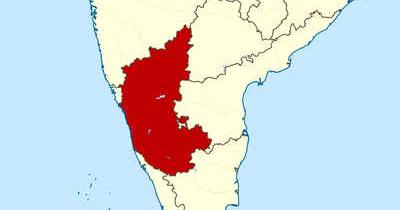Are you curious to know what is linguistic state? You have come to the right place as I am going to tell you everything about linguistic state in a very simple explanation. Without further discussion let’s begin to know what is linguistic state?
Language is an integral part of human identity and serves as a medium of communication, expression, and cultural heritage. In countries with linguistic diversity, the concept of a linguistic state emerges as a means to recognize and preserve the linguistic and cultural rights of different communities. In this blog post, we will delve into the concept of linguistic states, their significance, and the role they play in fostering cultural diversity and unity.
What Is Linguistic State?
A linguistic state is a political and administrative division within a country that is primarily based on linguistic boundaries. It is formed with the objective of providing a distinct political entity to a specific linguistic community or communities. The creation of linguistic states acknowledges and safeguards the linguistic, cultural, and educational rights of the communities residing within its borders.
Significance Of Linguistic States:
- Preservation of Cultural Identity: Linguistic states play a vital role in preserving the cultural identity and heritage of different linguistic communities. By recognizing a specific language as the official language of a state and promoting its usage, linguistic states help in the preservation of languages, literature, traditions, and customs that are unique to each linguistic community.
- Empowerment and Inclusion: Creating linguistic states empowers linguistic communities by providing them with a political platform to voice their concerns, aspirations, and demands. It ensures representation and participation in governance and decision-making processes, thereby promoting inclusivity and strengthening the democratic fabric of a country.
- Language Development and Education: Linguistic states foster language development and education in the respective languages spoken within their boundaries. They promote the creation of educational institutions, literature, and resources in the specific language, enabling linguistic communities to preserve, learn, and pass on their language and culture to future generations.
- Regional Development and Economic Growth: Linguistic states often prioritize the development of their regions, taking into account the unique needs and aspirations of the linguistic communities residing there. This focus on regional development and investment fosters economic growth, infrastructure development, and job opportunities, contributing to the overall progress and well-being of the state and its residents.
- Cultural Diversity and Unity: Linguistic states celebrate the rich tapestry of cultural diversity within a country. They recognize that unity can coexist with diversity, allowing different linguistic communities to thrive while promoting a sense of national unity. By embracing linguistic diversity, linguistic states contribute to the pluralistic fabric of a nation and enhance social harmony.
Challenges And Considerations:
While linguistic states have numerous advantages, there can be challenges and considerations to address. These include striking a balance between linguistic rights and national integration, ensuring equitable development across regions, and promoting inclusivity while respecting the rights of minority communities.
Conclusion:
Linguistic states embody the recognition and celebration of linguistic diversity within a country. They serve as platforms for the preservation of languages, cultures, and identities while empowering linguistic communities to participate in governance and development. By striking a balance between preserving cultural heritage and fostering national unity, linguistic states contribute to the rich tapestry of cultural diversity and create a harmonious and inclusive society. Embracing linguistic diversity through linguistic states ensures that our collective cultural heritage thrives, promoting a united and vibrant nation.
Empower Your Knowledge By Visiting Techyxl
FAQ
What Is The Meaning Of Linguistic Line?
It means the study of nature , structure and variations in language.
What Is The Meaning Of Linguistic Group?
Any linguistic group is a group of related languages that have descended from a common ancestor which is called the proto-language of the family. For example – Bengali and Assamese have Sanskrit as their proto-language while English and French have Roman as their proto-language.
Was The Creation Of Linguistic States The First?
The creation of linguistic states was the first and major test for democratic politics in our country. Several former Indian States had their borders altered in 1947 to make way for new States. This was to guarantee that speakers of the same language resided in the same state.
What Has Been The Experience Of Creation Of Linguistic States?
The Central Government resisted linguistic States for some time. But experience has shown that the formation of linguistic States has actually made the country more united. It has also made administration easier, the same language lived in the same State.
I Have Covered All The Following Queries And Topics In The Above Article
What Is Linguistic State
What Is The First Linguistic State In India
What Is The First Linguistic State Of India
What Is A Linguistic State What Is The Language Policy Of India
What Is Meant By Linguistic Reorganisation Of State
What Is Linguistic State Class 10
What Is A Linguistic State
Linguistic States In India
Linguistic States Examples
Linguistic States Class 10 Notes
Formation Of Linguistic States
Linguistic States Meaning In Hindi
Linguistic State Meaning In Telugu
How Many Linguistic States Are There In India
How Has The Formation Of Linguistic States Helped India
What Is Linguistic State
What is an example of a linguistic state
What are linguistic states?

